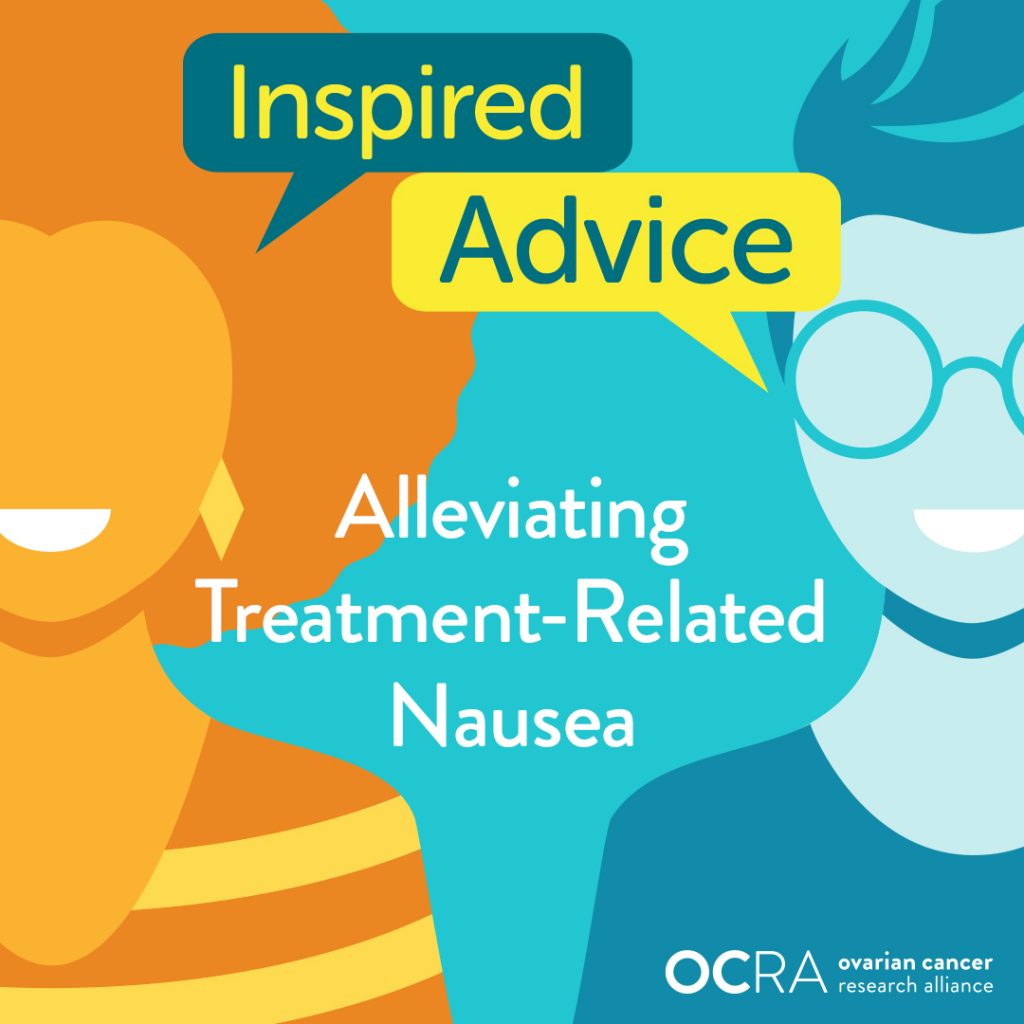
Those who have faced an ovarian or gynecologic cancer diagnosis have so much to offer to others going through a similar experience – be it support, tips or friendship. Inspired Advice is a blog series that tackles specific topics – from managing treatment-related nausea to intimacy post-diagnosis – and shares advice and reflections from our OCRA Inspire Online Community. They are, in many ways, the experts.*
What strategies do you use to alleviate treatment-related nausea?
- “Ginger”
- “Fortunately, I have hardly experienced any nausea from treatment, but the rare times I have a bit, I enjoy Fever Tree Jamaican Ginger Beer. It helps!”
- “Physician-prescribed medication and bland diet”
- “As weird as it sounds, eating soft scrambled eggs seems to help prevent it. I have found that I personally do better if I have a little something in my stomach when I get chemo. I take the medicine prescribed for three days even if I don’t feel too queasy at the time.”
- “Small meals, slow walking outside to take my mind off of it”
- “Peppermint oil”
- “Anti-nausea drugs, acupuncture”
- “Staying well hydrated helped me alleviate treatment-related nausea. Ginger-flavored hard candies helped too.”
- “Eat small meals”
What about other side effects of treatment?
Nausea is a common – and frustrating – side effect of chemotherapy, but as anyone who’s undergone treatment can tell you, it’s often not the only one.
Find additional information on why chemotherapy side effects occur, plus tips for managing side effects like changes in appetite, nerve problems, intimacy issues, “chemobrain” and more, in Chemotherapy Side Effects.
OCRA’s ovarian cancer online support community through Inspire.com offers a safe and private place to share encouraging feedback, compassionate support, and honest personal experiences. There are members from across the world who share their questions, concerns, successes and struggles with honesty and courage. Learn more or join our online Ovarian Cancer Inspire community.
* Sharing ideas and experiences can be extremely helpful but, as always, we advise speaking with your physician before making any dietary changes or adding herbs, teas, vitamins or supplements to your routine.


